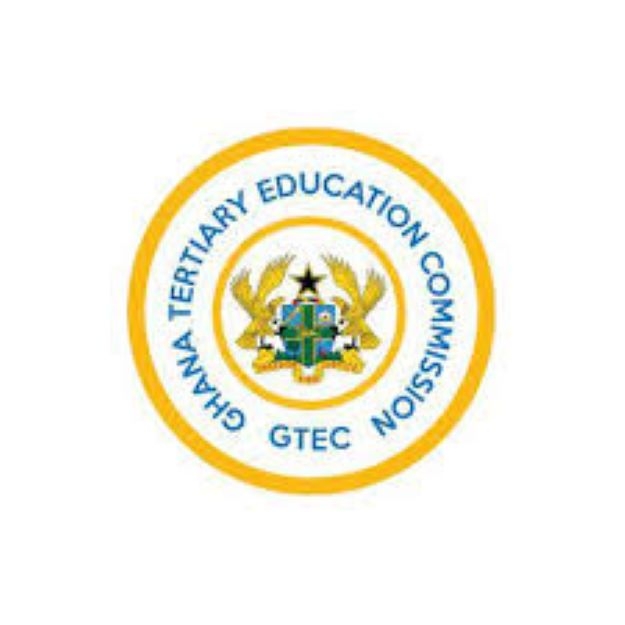Unreasonable GTEC actions will collapse private tertiary schools
 Ghana Tertiary Education Commission
Ghana Tertiary Education Commission
The Ghana Tertiary Education Commission (GTEC), under the leadership of Professor Ahmed Abdulai Jinapor, Director-General, has set August 31, 2024, as the deadline for closing all tertiary education institutions that fail to meet the requirements for a Presidential Charter.
Following the enactment of the Education Regulatory Bodies Act, 2020 (Act 1023), all tertiary institutions are mandated by law to obtain a Charter by August 31, 2024. However, GTEC has provided a caveat, stating that institutions unable to meet the minimum requirements for the Presidential Charter by the deadline but demonstrate sufficient cause will be given an additional two years to finalize their charter applications.
The application fee for the Charter was initially Sixty Thousand Ghana Cedis (GHS 60,000.00), but GTEC has increased it to Seventy Thousand Ghana Cedis (GHS 70,000.00).
The rushed enforcement of Act 1023 by GTEC could lead to the collapse of most private universities, colleges, and other institutions in the country by August 31, 2024.
While the idea of a Chartered University/College/Institute is commendable for granting autonomy and allowing the awarding of undergraduate and postgraduate degrees, the mandatory conditions are not internationally recognized as best practice.
The Charter process under Act 1023 should be an optional pathway, not mandatory as enforced by the Akufo-Addo government through GTEC.
The Optional Pathway aligns with international best practices and offers flexibility and affordability to private universities, colleges, and other institutions to develop competencies and resources to qualify for the Presidential Charter in due time without unnecessary financial burden and stress.
Private universities, colleges, and other tertiary institutions differ in financial, logistical, and infrastructural strengths. The extensive requirements demanded by GTEC for a Presidential Charter are deemed unreasonable.
Due to COVID-19 and poor economic conditions, many private educational institutions are facing financial challenges, infrastructure gaps, and enrollment deficits.
Internationally, private universities, colleges, and other tertiary institutions are allowed to operate without a Presidential Charter, being assessed based on the quality of teaching, research, and graduates they produce.
The Akufo-Addo government, through the Ministry of Education, should urgently intervene and instruct GTEC to suspend the August 31, 2024 deadline for private universities, colleges, and other institutions to meet the requirements for the Presidential Charter.
GTEC should understand the negative impact on students, parents, employment rates, and the economy if private educational institutions are forced to close by August 31, 2024.
The decision by GTEC to enforce unnecessary laws in an already struggling economy, especially in an election year, is needless.
The leadership of GTEC, the Ministry of Education, and the Akufo-Addo government should acknowledge that it took several years for public universities to obtain a Presidential Charter, even with government funding and support.
There is a need for GTEC to indefinitely suspend the enforcement of the August 31, 2024 deadline for private universities/colleges/other tertiary institutions. This deadline is politically, economically, and educationally counterproductive.
Investors and employees are still grappling with the negative effects of the Banking Sector Cleanup Exercise and the ongoing Domestic Debt Exchange Programme. Allowing GTEC to exacerbate the challenges faced by the private tertiary educational sector goes against the ideology of the New Patriotic Party (NPP).
The decision to enforce unnecessary laws undermines the image, reputation, ideological identity, and private sector growth philosophy of the NPP and significantly hampers the chances of the NPP's 2024 Presidential Candidate.
According to Article 36(2) of the 1992 Constitution of the Republic of Ghana, the state should establish a sound and healthy economy that affords ample opportunity for individual initiative and creativity in economic activities, fostering an enabling environment for the private sector's pronounced role in the economy.
Private universities, colleges, and other tertiary institutions contribute to the overall development of the educational sector and the national economy. There is no justification for the Akufo-Addo government, through GTEC, to threaten their closure based on requirements for a Presidential Charter.
In other jurisdictions, obtaining a Presidential Charter has always been an optional pathway for tertiary institutions. It is time to nurture and guide private universities, colleges, and other tertiary institutions to grow and remain competitive in Ghana's educational sector instead of rushing to shut them down by August 31, 2024.
It has been 32 years since the enactment and adoption of the 1992 Constitution of the Republic of Ghana, yet successive governments, including the Akufo-Addo government, have been unable to fully implement Article 38 (Educational Objectives) for all citizens of Ghana. Therefore, the rushed enforcement of Act 1023 is unnecessary.
Instead of closure, let's support private universities, colleges, and other tertiary institutions to thrive and contribute to Ghana's educational sector and national development.
Source: Razak Kojo Opoku
Trending Features

Lithium: A billion-dollar mineral, a withdrawn bill, and a country at a crossroads
15:14
When silence speaks louder than words
12:12
Project finance: A viable path to build Ghana’s infrastructure without overstretching or overburdening public Debt Ghana is facing mounting fiscal and infrastructure financing pressures
10:24
As awareness campaigns fade, new HIV infections rise
09:48
Rejoinder: Reject misleading calls to endorse vapes as tobacco harm reduction in Ghana's Public Health Act
23:34




